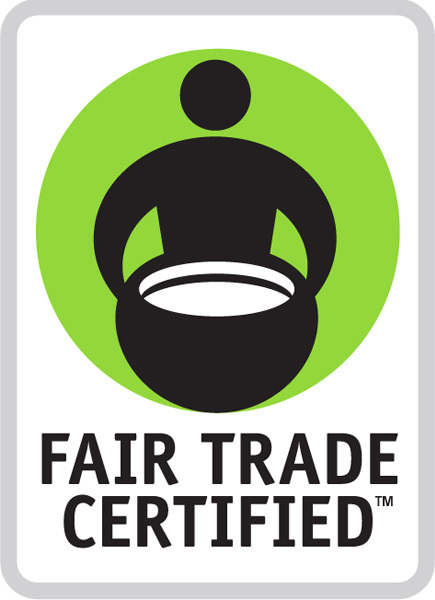America Just Got Its First Fair Trade Certified Farm
America Just Got Its First Fair Trade Certified Farm
It’s 7 a.m. in Amado, Arizona, and the sun is rising over the greenhouses of Wholesum Harvest’s tomato farm. Workers trickle up the driveway in their cars. One by one, they hang their coats, wash up, and prepare to begin another hard day’s work. Potters enter the greenhouses to deleaf and prune tomato plants, carefully tending each pot’s liveliest flowers. Bio control teams divide and tackle insects and other pests that like to eat the tomatoes. Like its two sister produce farms in Mexico, Wholesum Amado is all-organic, says Ricardo Crisantes, the company’s vice president of sales and marketing. By lunch time, music blares out from every greenhouse.
This year, Cesar Chavez Day and Farmworker Awareness Week arrive at an especially exciting time: Wholesum’s Amado farm is the first produce farm in America to become Fair Trade Certified™. That’s big news for a country where 85 percent of the fruits and vegetables consumed are picked by hand. For Wholesum, a third-generation family business, it marks the latest milestone in a decades-long history of leading the agricultural industry in social and environmental responsibility.
In 1930, Ricardo’s grandfather began farming tomatoes in Sinaloa, a coastal state in western Mexico. Ricardo’s father, Theojary, studied horticulture at the University of California, Davis in the 1960s, just as Cesar Chavez was founding the United Farmworkers Union, and Rachel Carson was writing Silent Spring. Theojary was captivated by Silent Spring, but he wasn’t sure how he could implement organic farming on his farm. In the 1980s, the family began experimenting. Ricardo remembers spending his high school summers helping his father erect their first greenhouses out of wooden poles, cables, and a plastic covers. After discovering natural food markets, food co-ops, and specialty grocery retailers in the United States, Theojary realized that the market for organic produce was much bigger than he expected. Suddenly, his organic farming dreams felt within reach. Over the years, one farm expanded to three; Ricardo and his brothers eventually joined the family business.
When the Crisantes family first heard about how coffee workers were benefiting from the Fair Trade model, in 2010, they saw it as a natural next step. Around the world, workers on Fair Trade Certified farms were not only elevating production standards, they were also using their Fair Trade Premium Funds (additional money earned with every Fair Trade sale) for community improvements of all kinds. They saw everything from farmers investing in transportation and education scholarships for women in Sri Lanka, to communities installing electricity in remote villages in Indonesia. Since earning Fair Trade certification for their farms in Mexico, these Premiums have helped workers purchase their own school bus to help their children get to school, build an at-cost grocery store and tortilla factory, and fund home loans, among other benefits.
In addition to investing in the quality of life of their workers, Fair Trade Certified farms must also meet rigorous social and environmental standards. Workers have access to healthcare, regulated working hours, rest and sick days, freedom of association, transparent pay, and many other labor standards to protect their health and safety. For example, Fair Trade Certified farms, packing plants, and housing are routinely audited for practices including fire safety, sanitary working and living conditions, and the use of protective equipment to prevent injuries and pesticide exposure.
Historically Fair Trade has been primarily available to farms in the global south. As Fair Trade USA began laying the groundwork to bring its program to the United States many years ago, Wholesum was already working hard to ensure they would be the first to earn certification. Ricardo and his family wanted to extend the benefits of Fair Trade to all of their workers, no matter which side of the border they work or live on.
At the newly Fair Trade Certified Amado, Arizona farm, workers are already discussing where to put their hard-earned Premium dollars to work. By this summer, Ricardo says, Wholesum’s winter and spring crops in Amado will yield enough Fair Trade Premiums to begin the first round of investments. Since all Wholesum employees already receive basic healthcare (in Mexico and the U.S.), one possible idea is to use Premiums to assist with specialty health care costs, like dental and vision. They have also discussed English and adult education courses. Wherever the investment goes, the decision will be made entirely by the workers, as has been done for years at Fair Trade farms worldwide.
Back at the Amado tomato farm, the work day is winding down. The day’s pick will arrive at Wholesum’s distribution center, where workers sort, package, and load the produce onto trucks. From there, they hit the road and head toward grocery shelves across the country. Wholesum’s growth and success has been dependent on the loyalty of their customers, Ricardo says, from farmer’s markets in Arizona all the way to grocery stores in California, Texas, and Georgia. Whole Foods Market will be the first to carry this Certified product.
Wholesum’s continuous drive as a leader in social and environmental responsibility signals a promising new chapter in Fair Trade USA’s history: After nearly 20 years of empowering farmers and workers around the world, the mission is being brought home. This effort, partly made possible by funders like the Mitsubishi Corporate Foundation for the Americas, acknowledges the fact that challenges faced by farmworkers aren’t contained within boarders— that agricultural work can be dangerous and undervalued whether it’s in Mexico, Peru, Ghana or the United States. This Farmworker Awareness Week (3/24-3/31) you can help tell a new story about the people behind our food by looking for Fair Trade. Every purchase is a vote, one that matters more than you think.





